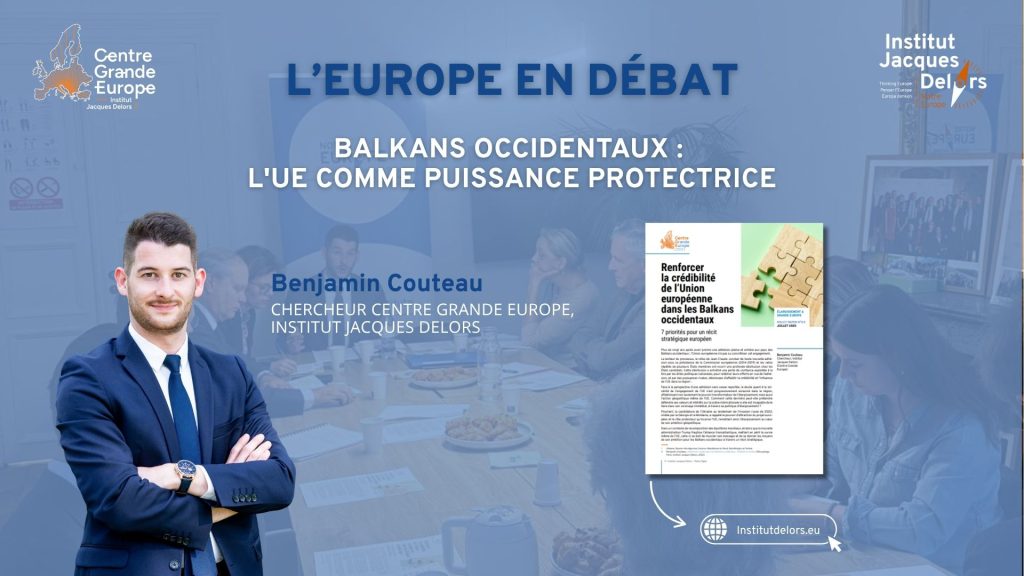Europe in debate #5 : Western Balkans: The EU as a protective power

On 14 October 2025, the Centre Grande Europe organised a round table discussion at the new premises of the Jacques Delors Institute, dedicated to Benjamin Couteau’s publication: ‘Strengthening the credibility of the European Union in the Western Balkans’.
The meeting brought together diplomats, elected officials, journalists and researchers to discuss an issue that is too often overlooked in French public debate: the influence of the European Union in the Balkans, its closest and most strategic neighbourhood.
🧩A continent in search of coherence and confidence
Benjamin Couteau opened the discussion by pointing out that the issue of enlargement is largely absent from French public debate, even though it could involve a national referendum.
According to a recent study, less than half of Europeans believe that the EU is now a global power capable of rivalling the United States or China. This internal scepticism weighs heavily: if Europeans doubt their own power, how can they claim to exercise it on their own continent?
🗺️From technocracy to geopolitics
Enlargement is no longer a technocratic exercise, but a geopolitical instrument for stability, security and the projection of European values.
The Western Balkans are not a peripheral area or a buffer zone: they form the heart of the Union’s strategic neighbourhood. Ignoring this reality leaves the field open to Russian, Chinese and other influences, which, although much less present, seek to challenge the EU’s influence and thereby weaken it.
📜The need for a European strategic narrative
The EU must therefore learn to speak the language of power in the Western Balkans. Mastering the narrative would not only give it the means to be better heard, but above all to set the agenda for debate before others do.
No other power offers the region such crucial economic and financial support as the EU. No other power but the EU offers the region a political space that allows it to exert influence far beyond its actual weight. No other power but the EU offers the region a cohesive force capable of guaranteeing regional security. It must take back the initiative by proposing a credible vision capable of inspiring confidence, hope and support.
And what about France in all this?
Discussions highlighted the need for Paris to provide greater support to democratic actors in candidate countries, particularly civil society and the media, so as not to disappoint the expectations that local populations have of the EU. Although France already has a strong presence in the region through the AFD (more than €1.5 billion over six years), this action has had little impact in the national public debate, particularly in economic circles.
Greater involvement of local authorities, SMEs and civil society actors would thus make it possible to better highlight the potential of this region, with a view to accession subject to constitutional approval.
Read the publication : https://institutdelors.eu/publications/renforcer-la-credibilite-de-lunion-europeenne-dans-les-balkans-occidentaux/
